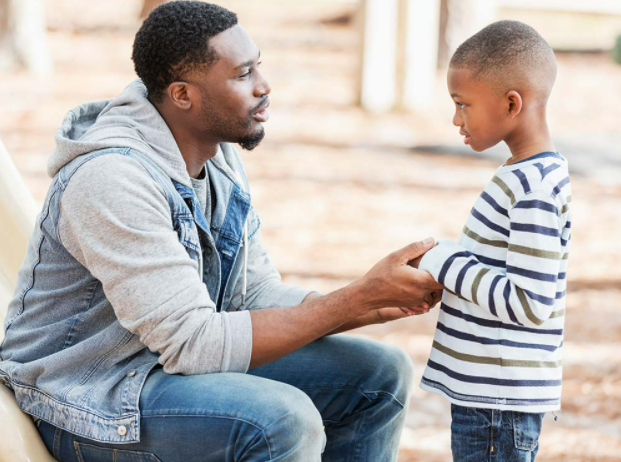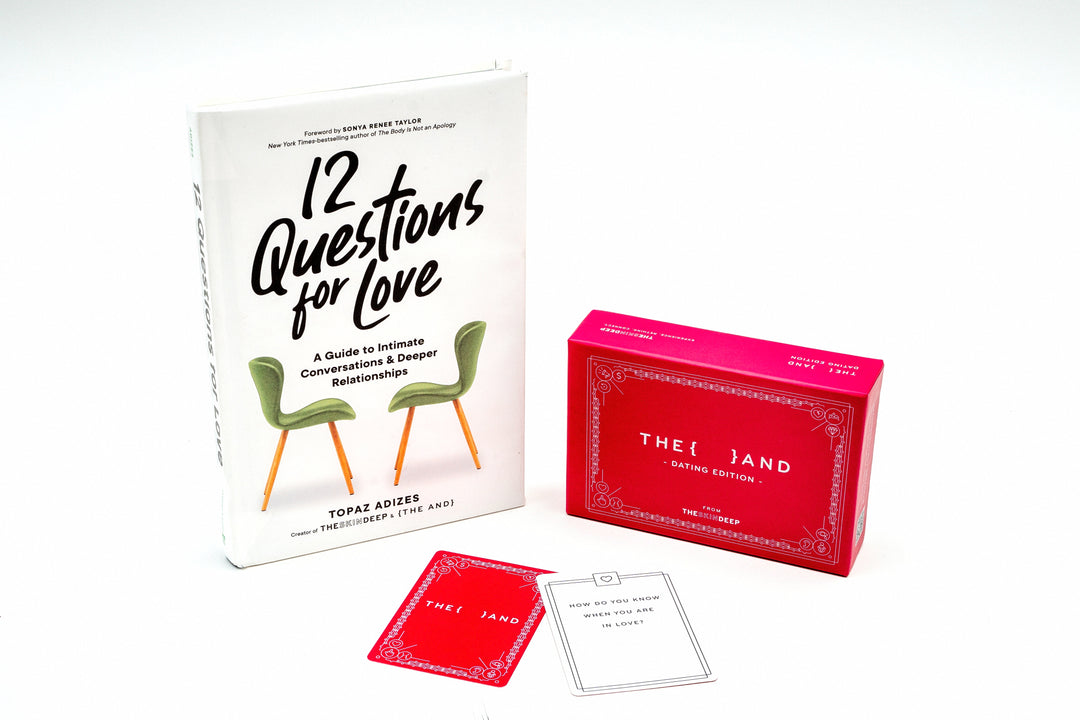How to Nurture Personal Development for Kids

Every child has an individual personality, but their upbringing also shapes their future temperament. Parents and guardians need to be aware of this so that they can help the child as much as possible during critical stages of development. There are various things that every parent can do to help their children have their own positive personal development, and grow into confident, strong individuals. Through countless documentary interviews, The Skin Deep team has been able to watch and learn as parents and their children grow greater bonds and talk through important conversations that contribute to this self development. Endowed by this documentary experience, we’ve been able to put together a list of the best ways we’ve seen parents help children on their path of personal progress.
What Does Personal Development for Kids Look Like?
Personal development is a term that covers self-directed efforts that teach kids important skills in all areas of life. When encouraged and directed properly, personal development for kids helps young people feel more motivated, have greater self-confidence, and learn to effectively set and accomplish their own goals. All of this leads to developing generations of children that are self-driven to grow into better people, which is, of course, a very worthwhile endeavor.
There are many different personal development activities kids can do. As an important adult in their life, you may have different suggestions for them based on interests, personality, or even age. The final objective for each child is the same, however, self development is meant to help children find passion, understanding of self, and joy. Some great examples of self growth in action could be: becoming disciplined at playing an instrument, practicing skills in a certain sport every day, or learning to read and write. Through any of these activities, personal development tenets can be inherently taught while also being fueled by adult guidance and discussion.
Improved Self Awareness
When children are alone with their own thoughts, they need to also learn the skill of being able to live in the moment and listen to themselves. This leads them to see the world in a different light and make decisions that can ultimately bring them a sense of completeness and happiness. Just as adults need to do, encouraging children to reflect on their core values and beliefs will help them to find a deeper, more meaningful level of joy.
Mastering a Positive Mindset
A positive mindset benefits children in all aspects of their lives and makes dealing with challenges easier. With a good attitude, they are more likely to take risks and be confident in themselves, their values, and in who they are. You can help kids develop these skills the same way we would as adults: teach them to write in a gratitude journal each day, practice affirmations and positive self-talk, and incorporate humor into their lives every day.
If a child is feeling particularly negative or down on themselves in any one area, it’s a good idea to take that moment as a teaching opportunity for how we can overcome negative thoughts. The H.A.L.T. technique is great here as well, where we intentionally take a moment for everything in the world to stop to ask important questions to ourselves: “Am I Hungry? Am I Angry? Am I Lonely? Am I Tired?” If the answer is yes to any one of those questions, some critical level of Maslow's hierarchy of needs is not being met. If the physical or psychological need can be fulfilled first, then the negative topic can be revisited as a team in a calmer, more thoughtful way. When you come back to the problem that is creating negative energy, it’s often far more effective to see what the true problems are leading to negative thoughts and how to tackle them.
Increased Creativity and Self Expression
Authentic personal development for children promotes creativity in the home and in other aspects of life. Enhanced creativity and the freedom to express themselves freely can help youngsters try new things that weren't possible before and open up a new world of opportunities. This builds the foundation for great problem solving, resilience, and flexibility…which sets kids up for success in a myriad of sticky situations that life will throw at them.
How Do I Guide a Child to Have Self Development Skills?
Communicate, Share, and Listen
Great communication is the first step in helping the child in your life become self-directed and have personal development skills. In today's fast-paced world where people are often overbooked and time is limited, there are many families who just don't have enough time to talk. Start sparking bigger conversations with young kids by asking interesting questions and getting to the root of their individual perspectives and opinions.
If you’re intimidated about getting started or you’re not sure how to break out of a small talk rut, look into {THE AND} Card Games by THE SKIN DEEP–our Family and Kids edition decks particularly are full of 199 thought-provoking questions that help parents and children ignite bigger conversations.
Encourage Unstructured Play
Recreational sports, piano lessons, and art classes are different from unstructured play. In sports one is playing in a competitive environment. Piano lessons or art classes often involve instruction. But playtime free from parameters to explore and create is critical to development - children lose track of time when engaged in free play and it fulfills a need to learn incrementally through trial and error. There may not be a specific learning objective in each moment, but this type of unstructured play will give your kids the opportunity to explore our world while also going through all of the skills they need in order to become an adult. All of the senses are stimulated, pressure is lifted as there is no “wrong” way to play freely, and it allows children to make decisions and exert control over their own bodies and minds.
Teach Personal Development Skills by Example
Contrary to what some may think, children learn just as much from how the adults around them act as they do from what they say. If you want your words to carry weight, then make sure they watch you develop your own skills as well. Share with them your goals or a vision board, put inspirational quotes around the house to keep everyone motivated, and particularly point it out when you’re doing something that is for the specific intent of bettering yourself. “I am leaving to go to the gym because I want to achieve my fitness goal,” or “Yes, I’m reading this book that is about organization because I’m working on keeping our house clean.” Kids spend most of their time watching adults when they're young. They learn a lot about life by preparing for it and already seeing adults act in certain ways. Children pick up on inconsistencies and will apply it to the situation they see themselves in. To avoid that, acting with consistency in front of children is paramount.
Talk to Children About Future Planning and Careers
One way to promote healthy habits in children is by encouraging them to explore their personal development in the present while learning about the future. Children need an understanding of what adults do in the world and to become educated about different fields of expertise. This will help them as they grow to determine what is a good career for them in the future while encouraging mental imagination and explorative daydreaming in the present.
Create Outdoor Play Time
A lot of children nowadays don't have prevalent playtime due to a number of reasons. Sports are a common way that children learn values, work with others, and build resilience. It lets them enjoy themselves while learning valuable life skills. Playing outdoor sports is a good way to help kids develop skills and personalities. Many parents these days are shielding their children from playing outside and even stopping them from taking up any sport. Children need to be active in order to develop both their physical and mental fitness. They release stress and are more cheerful when they take part in a sport daily.
Set Limits on Screen Time
Many parents these days struggle with their children spending too much time on tablets or other devices. Studies show that excessive screen time can impair kids’ intellectual and social development. Playing games often on devices leads to addiction and that takes up time away from social interaction.
Spend more time with your child playing games and traveling for them to get a break from gadgets and have a real-life experience in their surroundings. Make-believe, exercise, board or card games, and cooking are all activities you can do with a child without a screen and without leaving the comfort of your home. Paired with fun and engaging activities outside the home like bike rides, visits to museums and aquariums, or even just running errands , your child will have a healthy dose of tactile experiences to call upon at any time that teach them to prioritize people and in-person human interaction above the virtual environments in which they spend time.
Avoid Labels and Allow Kids to Be Defined by Many Characteristics
Labels are powerful. When parents label their little ones for what behaviors or habits seem to be present, the child might believe throughout their lives that this is how they act or a core part of who they are, whether that is true or not. Not only do labels box them into certain behaviors but they also stop them from exploring other options. This is especially important while correcting a child's mistakes. It’s important for all parents to remember that derogatory terms will never be appropriate and lead children to feelings of low self-worth. When seeing the use of derogatory labels being normalized, children are also more likely to imitate this behavior in front of other people, and believe that it’s an acceptable behavior. Always be cautious with your words, because they matter.
Most parents are pretty good at avoiding obvious issues like calling their children belittling names or labeling them as “dumb” or “bad,” but perhaps it’s time to consider what other labels you may inadvertently be giving your children, not necessarily negative or positive, can still be overly definitive. Words like “smart”,“beautiful”,“clumsy”, or even “bossy” are limiting for children as they describe someone by how they are perceived to be, not by what they do. Try instead to compliment or encourage with descriptors of what your child achieved through their effort, like “I think it’s so great you have worked on your reading every day. Reading helps people become really smart.” or “Oh no you tripped! I hate when that happens. Can I show you how to do the stairs one foot at a time?” Some other examples could be: “It’s really neat that you lead the game today during playtime. Perhaps next time we can find a way to take turns leading?” or “I love that you braided your hair in such a beautiful way today. Braids are really tough to master.”
By encouraging children to work on self development skills early on, they will learn to effectively set goals, take responsibility, and have a positive attitude. When you do this, your child is armed with crucial skills for lifelong success. If you create a culture of personal development within your own home you’ll also be creating an atmosphere where children can thrive in their own independence and intellect, and you all will become the best versions of yourselves as individuals.
>>>
{THE AND} Card Games by THE SKIN DEEP create opportunities for kids and families to learn more about one another and have more dynamic conversations. Check out our Kids, Family, or Amusing decks to build stronger bonds with the children in your life.















Leave a comment